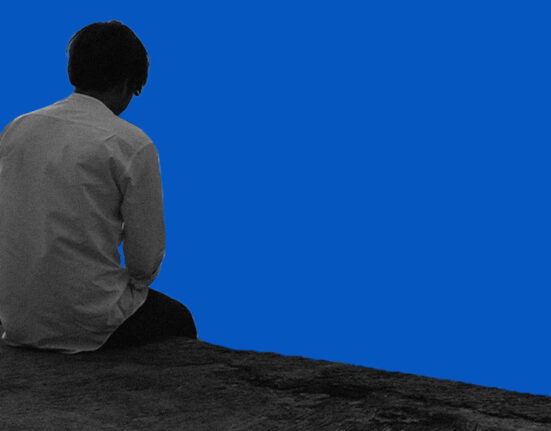In the age of Instagram reels and carousel posts, we’ve often come across therapists having a social media presence. While spreading awareness about mental health is crucial, the word trauma is used quite loosely and in a way overgeneralised. Especially in the age of Insta-Therapy and Pop psychology, this is seen a lot more often online. This article explains the psychological meaning of trauma, the rise of Insta, as well as the hype about pop-psychology that leads to trauma becoming a trend, why this happens as well and the impact it has on us as social media consumers.
Read More: The Psychology of Instagram
Understanding the Concept of Trauma
Trauma is any event that causes difficulty in one’s ability of everyday function, cope and live, leading to distress. Now here comes the more interesting part that pop psychology and instagram therapy overgeneralises and has made a common term is PTSD as in post traumatic stress disorder. Psychologically, however, a person who has experienced a traumatic event doesn’t need to be diagnosed with PTSD (Tull, 2023).
There are different kinds and categories of trauma, like a one-time event, long-lasting trauma and more. A few kinds are a natural disaster, accident, death, serious health illness, terrorism and violence, rape, abuse or assault, divorce and others. The symptoms of trauma include any form of hypervigilance where the person is constantly on edge and looking out for any signs of danger, disturbing memories and intrusive thoughts, along with hyperarousal, otherwise being on edge (Tull, 2023).
The Concept of Insta-Therapy: A Double-Edged Sword
Insta therapy is where either professional therapists come on to talk and spread awareness about mental health and subjective wellbeing. Includes talking about various mental health disorders, healing techniques, tips from various kinds of therapy and a lot more. This however in some cases can be very helpful to understand how therapy works, to gauge the qualification of the therapists and their working style and more, the advice and techniques imparted online via these reels and posts can be if help many so in a way instagram therapy can be of help however it does come with its own set of problems, that can hurt people consuming it and even notions around therapy (Beesley, 2019).
What is Pop Psychology?
We’ve heard of pop culture, well now, with the rise in Instagram therapy, there is also a term emerging known as pop-psychology, where, in simple words, psychological terms are explained in the easiest way. To be more specific, pop psychology is an umbrella term. It includes the techniques, therapy, concepts of mental health and well-being and psychological conclusions gained from various sources like shows, movies,s books and the world at large. Also, it includes a high dose of self-help material (Cuncic, 2023d), which, again, Instagram therapy has its best roots in these days.
It is a side of psychology that isn’t entirely scientifically backed. This means quick and easy fixes to deep-rooted and difficult problems. Using positive thinking and generalising to help overcome the emotion that one is feeling. This age has also seen social media promote the widespread use of wellness influencers who also follow this same approach most time (Cuncic, 2023d). This is dangerous because one doesn’t always put in the effort to work with the deeper cause, and surface-level easy fixes taught by pop psychology or online ‘insta therapy’ can popularise trauma or undermine the severity of the situation.
Read More: Is “Being an Influencer”a Legitimate Career or a Social Media Mirage?
Pop Psychology, Instagram Therapy, and the Impact of Trending Trauma
The first step is recognising when you are reading actual research-backed psychological content vs pop psychology on Instagram therapy pages or social media pages in general. A few of these ways to identify are that the person on the page does not have a license or qualification that is verifiable. The content seems too good to be true and just that easy of a fix, and lastly, no such claim of the Instagram therapist having helped and treated any client (Cuncic, 2023d). Negative effects of social media at large are known to all of us. When mixed with therapy and pop psychology, it can lead to distorted perceptions of trauma, body image, emotions, mental health disorders and healing in general.
Read More: Misinformation in Your Feed: When Social Media Becomes a Mental Health Risk
Scientific and Psychological Reasons Why Trauma Is Trending in Insta-Therapy
The social learning theory by Albert Bandura talks about how observation plays a huge role in learning and picking up habits and new techniques. This can be easily applied to how pop psychology and Instagram therapy, when overconsumed, can have their share of ill effects. According to this theory, when one observes and absorbs its consequences of someone else’s actions, it can lead to them being influenced to do so or even refrain from doing so.
Association and reinforcement are the two concepts largely used (MSEd, 2024h). In the case of online therapy, one may observe how self-help techniques affect an individual, and they often try to copy that; however, it may not always yield the same outcome, as we as individuals are all different. Pop psychology is mainly about easy fixes and simpler methods to healing than actually finding the deeper cause.
Labelling Theory and the Rise of Self-Diagnosis
Self-diagnosis is just as serious as it sounds. Labelling and recognising mental health or physical health issues, and self-labelling them, can be dangerous. In the case of pop psychology and the trending trauma on Instagram therapy, the labelling theory by Howard Becker is useful. Although sociologists originally developed the theory to understand deviance and identify criminal behaviour by labelling certain actions as illegal or criminal, people now also apply this framework to how social media labels mental health disorders and transforms trauma into a trend (Skaggs & Lynn, 2025). Ask ChatGPT. Labels like survivor, anxious girl trend, and others can create echo chambers. This can lead to anxiety, overthinking, stress, overestimation of problems and quick fixes and more
Read More: The Risks of Overdiagnosis or Self-Diagnosis in the Digital Age
Students’ Perspectives on Instagram Therapy and Conclusion
To conclude, Instagram therapy and pop psychology can offer short-term support and can help you begin healing and understanding yourself. However, when one undermines the gravity of their situation due to quick fixes and self-help seen online, it can change how one views the core concept of therapy and their decision whether to ever go to therapy or not. The most effective solution is to ensure that licensed therapists share research-backed content online, rather than allowing unqualified individuals on social media to spread opinions about mental health and well-being.
FAQs
1. How to recognise pop psychology?
A few of these ways to identify are that the person on the page does not have a license or qualification that is verifiable. The content seems too good to be true, and just that easy of a fix and lastly, no such claim of the Instagram therapist having helped and treated any client (Cuncic, 2023d).
2. What is trauma in psychological terms?
Trauma is any event that causes difficulty in one’s ability of everyday function, cope and live, leading to distress. The symptoms of trauma include any form of hypervigilance where the person is constantly on edge and looking out for any signs of danger, disturbing memories and intrusive thoughts, as well as hyperarousal, otherwise being on edge (Tull, 2023).
3. Is Insta-therapy helpful at all?
In some cases can be very helpful to understand how therapy works, to gauge the qualification of the therapists and their working style and more, the advice and techniques imparted online via these reels and posts can be of help many so in a way instagram therapy can be of help however it does come with its own set of problems if considered in long term for deeper mental health worries.
References +
Tull, M., PhD. (2023, February 6). What is trauma? Verywell Mind. https://www.verywellmind.com/common-symptoms-after-a-traumatic-event-2797496
Beesley, K., PhD. (2019, October 4). Instagram is not therapy but it can be part of the process. Psychology Today. https://www.psychologytoday.com/us/blog/psychoanalysis-unplugged/201910/what-is-insta-therapy
Cuncic, A., MA. (2023d, November 28). What is pop psychology? Verywell Mind. https://www.verywellmind.com/what-is-pop-psychology-5195653
MSEd, K. C. (2024h, July 16). How social learning theory works. Verywell Mind. https://www.verywellmind.com/social-learning-theory-2795074
Skaggs, & Lynn, S. (2025, June 18). Labeling theory | Concepts, Theories, & Criticism. Encyclopedia Britannica. https://www.britannica.com/topic/labeling-theory













Leave feedback about this